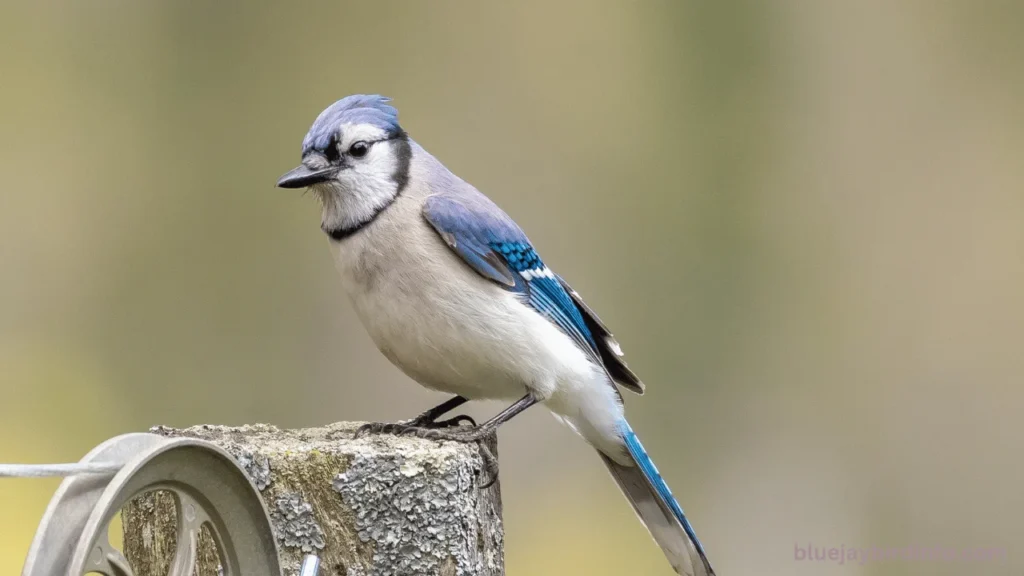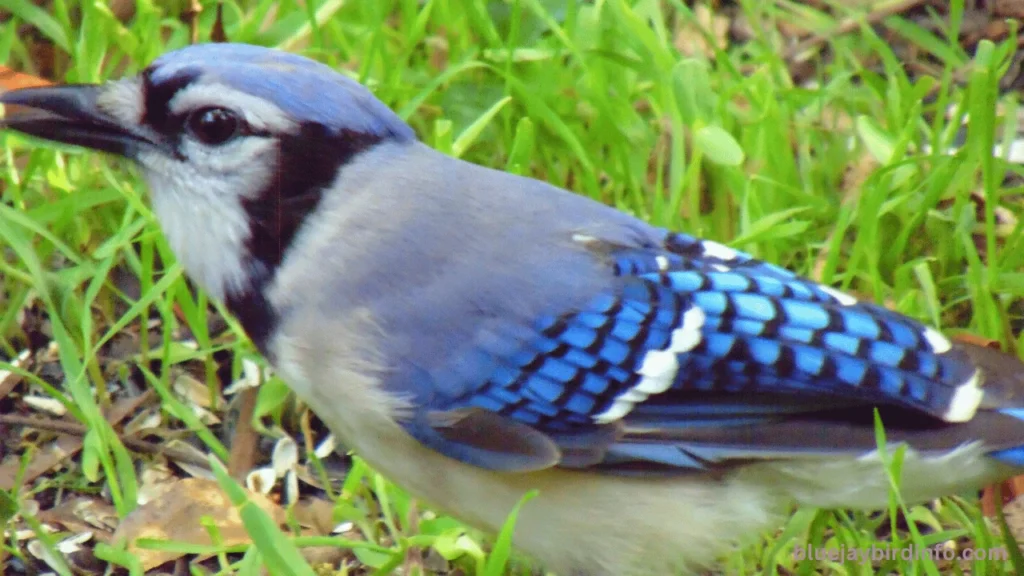Blue jays are among the most striking and recognizable birds in North America, known for their vibrant plumage and raucous calls.
However, their behavior can be a source of fascination and controversy, especially when it comes to their feeding habits. Stories abound of blue jays raiding nests and stealing eggs, sparking a debate among birdwatchers and nature enthusiasts alike.
This raises an intriguing question: Are blue jays merely opportunistic feeders, or do they engage in more nefarious acts that disrupt the delicate balance of their ecosystems?
The notion that blue jays steal eggs is a topic that stirs up curiosity and concern. While many bird lovers admire these clever creatures for their intelligence and adaptability, witnessing them raid a nest can be a shocking sight.
This complex behavior challenges our perceptions of blue jays, forcing us to consider not only their role in nature but also the motivations behind such acts. What drives these birds to steal eggs from other nests, and what impact does this behavior have on both blue jays and their avian neighbors?
In this article, we will delve into the complexities of blue jay behavior, examining the evidence surrounding their involvement in egg-stealing incidents. By exploring the motivations behind this behavior, we can better understand the role blue jays play in the avian community.
Join us as we uncover the truth behind this fascinating yet contentious topic, shedding light on a behavior that may challenge our views of these beautiful birds.
Contents
- 1 Blue Jay Behavior and Diet
- 2 Evidence for Egg-Stealing Behavior
- 3 The Impact of Egg-Stealing on Other Birds
- 4 Alternative Explanations for Egg Disappearance
- 5 Conclusion
- 6 FAQ’s
- 6.1 Do blue jays actually steal eggs from other birds?
- 6.2 What do blue jays eat besides eggs?
- 6.3 How can I tell if blue jays are stealing eggs?
- 6.4 Are blue jays harmful to other bird populations?
- 6.5 What are some common predators of bird eggs besides blue jays?
- 6.6 Can egg-stealing by blue jays affect conservation efforts?
Blue Jay Behavior and Diet
Blue jays are omnivorous birds with a remarkably diverse diet that reflects their adaptability in various habitats. Their diet primarily includes insects, fruits, seeds, and nuts, making them opportunistic feeders.
This varied nutrition allows them to thrive in different environments, foraging for food year-round. Their ability to consume a wide range of food sources contributes to their survival and success in the wild, especially during seasonal changes when certain foods may be scarce.
In addition to their foraging habits, blue jays exhibit notable predatory tendencies that can sometimes lead them to raid the nests of other birds. While they are not typically classified as primary predators, blue jays have been observed attacking smaller birds and their young, showcasing a more aggressive side to their behavior.
This predation is often motivated by the need for protein-rich food to support their energy needs, especially during the breeding season.
When examining the egg-eating behavior of blue jays, it’s essential to recognize that they are not alone in this practice. Other bird species, such as certain crows and magpies, are also known for consuming eggs, making them part of a larger group of opportunistic feeders.

By comparing blue jays to these other species, we can gain a clearer understanding of the role egg consumption plays in avian diets and the ecological implications of such behavior. Ultimately, the complex interplay between blue jays’ feeding habits and their predatory instincts highlights their adaptability in the ever-changing landscape of the natural world.
Evidence for Egg-Stealing Behavior
There is a range of anecdotal reports suggesting that blue jays engage in egg-stealing behavior from the nests of other birds. Birdwatchers and nature enthusiasts often share stories of witnessing blue jays hovering near nests or exhibiting aggressive behaviors that imply they are on the lookout for unattended eggs.
While these accounts are compelling, they represent only part of the broader picture regarding blue jay interactions with other species’ nests.
Direct observations of blue jays stealing eggs are relatively rare, but they do exist. Wildlife researchers have documented instances where blue jays were seen actively raiding nests, swiftly snatching eggs and quickly departing the scene.
These direct encounters lend some credibility to the notion that blue jays can be opportunistic thieves in the avian world, especially when they can take advantage of vulnerable nests that lack adequate protection.
In addition to anecdotal and direct evidence, there is also indirect evidence that supports the claim of blue jays engaging in egg theft. Many birdwatchers have reported the mysterious disappearance of eggs from nests in areas where blue jays are frequently observed.
This pattern raises concerns about blue jays’ impact on local bird populations and their nesting success. While the evidence may not be entirely conclusive, the combination of anecdotal accounts, direct observations, and indirect clues suggests that blue jays may indeed participate in egg-stealing behavior, highlighting the complex interactions that occur within avian communities.
The Impact of Egg-Stealing on Other Birds
The act of egg-stealing by blue jays can have significant consequences for the populations of other bird species. When blue jays raid nests, they not only reduce the number of successful hatchlings but also disrupt the delicate balance of the local ecosystem.
Over time, this can lead to a decline in specific bird populations, particularly those that are already vulnerable or have limited nesting sites. The loss of eggs directly impacts the reproductive success of these birds, contributing to decreased numbers and potentially altering community dynamics.
In response to the threat of egg-stealing, many bird species have developed nest defense strategies to protect their young. For instance, some birds may engage in aggressive behaviors to ward off potential nest raiders or become more vigilant during the critical nesting period.
Others might even opt to relocate their nests to less accessible areas, though this strategy can be resource-intensive and may not always be feasible. These adaptive behaviors highlight the ongoing evolutionary arms race between nesters and their predators, as both groups continually adjust to changing environmental pressures.
From a conservation perspective, the implications of egg-stealing by blue jays warrant serious consideration. Habitat protection becomes crucial to ensure that all bird species have safe and suitable environments for nesting.
Additionally, population management efforts may be needed to maintain a balance between blue jays and other bird species, ensuring that ecosystems remain diverse and resilient.
Understanding the impact of blue jay behavior on fellow avian residents is essential for developing effective conservation strategies that benefit both blue jays and their neighbors in the wild.
Alternative Explanations for Egg Disappearance
While blue jays are often implicated in the disappearance of eggs from nests, it is essential to consider other potential culprits that could be responsible. Various bird species and predators might prey on eggs, such as raccoons, snakes, or even smaller birds known for their egg-eating habits.
These animals often share the same habitats as blue jays and can contribute significantly to egg loss, complicating the narrative surrounding blue jay behavior.
Another possibility is that nest abandonment by parent birds could explain the absence of eggs. Various factors, including environmental stressors or disturbances, may lead parent birds to abandon their nests, leaving eggs vulnerable to predation.
In such cases, the eggs might disappear not due to theft but rather as a consequence of parental neglect. This highlights the complexities of bird parenting and the challenges they face in ensuring the survival of their offspring.
Furthermore, incidental damage can occur during territorial disputes or other interactions among birds. In their efforts to assert dominance or establish boundaries, birds might accidentally break nests or displace eggs without the intent to steal.
This accidental damage can contribute to the mystery of missing eggs, illustrating that the reasons behind egg disappearance are often multifaceted and warrant careful investigation. Understanding these alternative explanations is crucial for developing a comprehensive view of avian behaviors and their ecological implications.

Conclusion
In summary, the question of whether blue jays steal eggs is complex and nuanced. This article explored the behavior and diet of blue jays, highlighting their omnivorous nature and potential predatory tendencies.
We examined evidence of egg-stealing behavior, including anecdotal reports and direct observations, while also acknowledging the impact of egg-stealing on other bird populations and the resulting conservation implications.
Additionally, we considered alternative explanations for egg disappearance, emphasizing the roles of other predators and the potential for nest abandonment or incidental damage.
In conclusion, while blue jays are often cast as villains in the drama of avian nesting, their involvement in egg-stealing remains a contentious issue that requires further research and understanding.
As we continue to observe and study these fascinating birds, it becomes increasingly important to appreciate the complexity of their behaviors and the ecological interactions that shape their roles within the ecosystem.
By embracing this complexity, we can foster a deeper respect for the intricate web of life that exists around us and recognize that nature is rarely black and white.
Also, read other articles related to Blue Jay Habits!
FAQ’s
Do blue jays actually steal eggs from other birds?
Yes, blue jays are known to take eggs from nests, but their behavior can be influenced by various factors and is not the sole reason for egg disappearance.
What do blue jays eat besides eggs?
Blue jays have an omnivorous diet that includes insects, fruits, seeds, and nuts.
How can I tell if blue jays are stealing eggs?
Observing nests with missing eggs in areas where blue jays are present can be an indicator, but it’s essential to consider other factors as well.
Are blue jays harmful to other bird populations?
While they can negatively impact certain species by stealing eggs, blue jays also play important roles in ecosystems, such as seed dispersal.
What are some common predators of bird eggs besides blue jays?
Other predators include raccoons, snakes, and some bird species known for egg-eating.
Can egg-stealing by blue jays affect conservation efforts?
Yes, understanding the dynamics of egg-stealing can help inform conservation strategies and habitat management for vulnerable bird populations.








